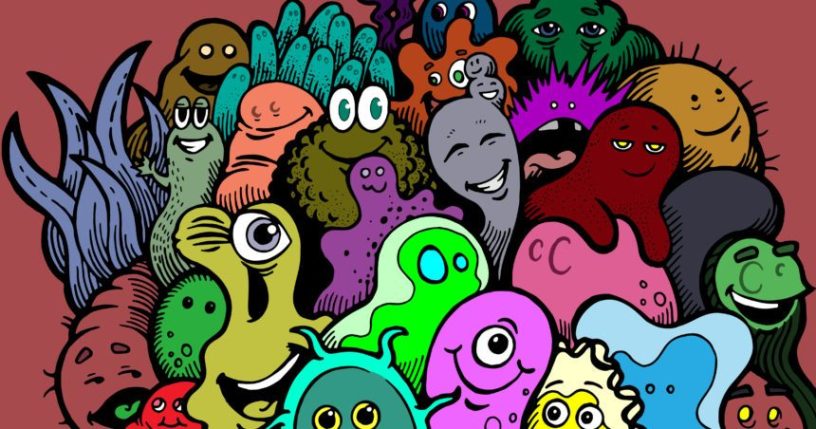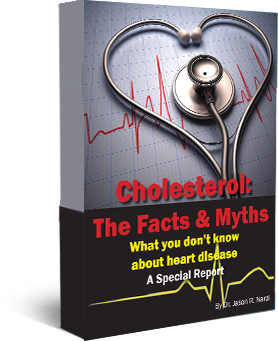The Human Biome. Currently one of the most researched areas in health. How do the bacteria in and on our body affect our overall health? This information is unfolding more and more every week. Most of the research is focusing on the gut microbiome, but our microbiome extends into the mouth, skin, and much more.
What is the Microbiome?
The human biome, or microbiota, is made up of the communities of microorganisms that live in and on our bodies. They are almost everywhere – In our gut, saliva, lungs, mouth, skin, and most biofluids – Even our belly buttons! They are made up bacteria, fungi, and some viruses. And there are a lot of them. New estimates but the ratio of microbiotic cells to human cells at 3:1![1] [2] A part of your microbiota is even inherited from your mother during the birth process, and partly shared with those closest to you. They help us digest food and process waste, build our immune system, and even influence our brain and DNA expression.
As you can guess these tiny communities of living things can be influenced by outside factors too. Things like infections and chemicals have adverse effects on this little critters, and that can lead to adverse effects in us, their hosts. When they get depleted or pushed out by non-friendly organisms it is called dysbiosis.
Study adds to evidence linking gut bacteria and obesity
 Metabolic syndrome is a rampant. Metabolic syndrome includes high blood pressure, high blood sugar, excess body fat around the waist, and abnormal cholesterol levels. It increases a person’s risk of heart attack and stroke, and the numbers of people with it keep growing. The problems that stem from metabolic syndrome lead to more deaths now than smoking. That’s pretty shocking! But when you think about the individual risks associated with heart disease, arterial disease, obesity, and diabetes they are not good – They are even worse when they are combined together.
Metabolic syndrome is a rampant. Metabolic syndrome includes high blood pressure, high blood sugar, excess body fat around the waist, and abnormal cholesterol levels. It increases a person’s risk of heart attack and stroke, and the numbers of people with it keep growing. The problems that stem from metabolic syndrome lead to more deaths now than smoking. That’s pretty shocking! But when you think about the individual risks associated with heart disease, arterial disease, obesity, and diabetes they are not good – They are even worse when they are combined together.
“A new Johns Hopkins study of mice with the rodent equivalent of metabolic syndrome has added to evidence that the intestinal microbiome — a “garden” of bacterial, viral and fungal genes — plays a substantial role in the development of obesity and insulin resistance in mammals, including humans.
A report of the findings, published Jan. 24 in Mucosal Immunology, highlights the potential to prevent obesity and diabetes by manipulating levels and ratios of gut bacteria, and/or modifying the chemical and biological pathways for metabolism-activating genes.” [3]
Dysbiosis increases cancer risks
Cancer is a big problem and it is the second highest cause of death in the USA and getting closer to pushing out heart disease for the number one spot. Colo-rectal cancers are the 3rd most common cancers. It will affect 135,430 Americans this year, equally affecting men and women.[4] Cancers of the head and neck affect the face, oral cavity, larynx, and pharynx. These will affect 500,000 people this year worldwide and claim 380,000 lives. [5] New research is showing that our good bacteria help prevent these life threatening diseases.
 When we talk about this stuff most people automatically think of the gut bacteria and rightfully so; There are several papers published weekly that better explain the mechanisms that happen between our cells and these microorganisms. A paper published in 2014 by The Wistar Institute showed that bad bacteria in our gut biome increase bowel cancer risks by decreasing a protein called ZRANB3, a protein that is responsible to DNA repair. If a colon cell cannot repair its DNA the increase in mutations in cells increases the risk of colon cancer. [6]
When we talk about this stuff most people automatically think of the gut bacteria and rightfully so; There are several papers published weekly that better explain the mechanisms that happen between our cells and these microorganisms. A paper published in 2014 by The Wistar Institute showed that bad bacteria in our gut biome increase bowel cancer risks by decreasing a protein called ZRANB3, a protein that is responsible to DNA repair. If a colon cell cannot repair its DNA the increase in mutations in cells increases the risk of colon cancer. [6]
The bacteria in the mouth is often only associated with tooth decay, but new studies are proving there are plenty of good guys in the oral cavity. A JAMA Oncology report entitled, Association of Oral Microbiome With Risk for Incident Head and Neck Squamous Cell Cancer published in January 2017 showed a “greater oral abundance of commensal Corynebacterium and Kingella is associated with decreased risk of HNSCC (Head and Neck Squamous Cell Carcinoma), with potential implications for cancer prevention.” [7]
Microbiome-Gut-Brain connection
 For me as a Doctor of Chiropractic, one of the most fascinating things researchers have discovered is the Microbiome-Gut-Brain Axis, or MGB. That is essentially a communication pathway between our gut and our brain. How it works is complex and understanding about the mechanism is still unfolding. Simply put, the condition of the intestines and the communities of bacteria in them, both good and bad, have a direct link to the brain via the Vagus Nerve.
For me as a Doctor of Chiropractic, one of the most fascinating things researchers have discovered is the Microbiome-Gut-Brain Axis, or MGB. That is essentially a communication pathway between our gut and our brain. How it works is complex and understanding about the mechanism is still unfolding. Simply put, the condition of the intestines and the communities of bacteria in them, both good and bad, have a direct link to the brain via the Vagus Nerve.
This communication can have an effect on mood and cognitive function. Changes to the microbiome-gut-brain axis could be associated with the etiology of different neuropsychiatric disorders such as depression. [8] Studies using animal models showed that a properly balanced gut micobiota have a benefit in anxiety, memory, and socialization. [9] Other evidence appears to show certain signals from the MGB can create anti-inflammatory responses from the immune system and increase the amount of beneficial neurotransmitters like acetylcholine.[10]
Many studies are showing the link between intestinal microbes and the regulation of the neuroendocrine-immune system and central nervous system (CNS). Changes in the biome are associated with disorders such as multiple sclerosis,[11] autism, depression, schizophrenia and Parkinson’s Disease (PD).[12] Some researchers feel that changes in certain bacterial communities in the GI tact may be the earliest signs of Parkinson’s Disease and that digestive health may be a solid indicator of PD. Studies suggested that constipation is more than twice as common in people who develop PD and that they are twice as likely to develop PD with 10 years. Constipation symptoms usually began 15 to 24 years before a diagnosis of Parkinson’s Disease was give.[13]
How to be a good host
 Excuse the pun, but seriously you need to be the best host you can to keep these helpful organisms happy. There are a few things you can do really benefit them and your health
Excuse the pun, but seriously you need to be the best host you can to keep these helpful organisms happy. There are a few things you can do really benefit them and your health
-
-
- Stop using the artificial sweeteners! On top of being a cause of weight gain and sugar-handling problems, they also reduce the number and balance of beneficial bacteria in the gastrointestinal tract. They also change the DNA in GI tract and that, as I mentioned earlier, can lead to colon cancers. [14]
- Up your fiber. In a research paper entitled “Diet-induced extinctions in the gut microbiota compound over generations” discussed the lack of fiber in our modern “convenience foods” may cause an irreplaceable loss of our gut flora. What’s worse is according to the research team at Stanford University, these deficiencies will be passed down to future generations. [15]
- Take a high-quality pre- and probiotic. Increases the beneficial flora in your digestive tact will increase the viability and diversity of microbes. [16] Probiotics are especially critical after taking any antibiotic [17][18][19]
-
Probiotics are not all the same. Some require refrigeration, others need to be taken at specials times like at night or with food. Prebiotics also are not all created equally. There is a large variation in the quality of both these types of products – many brands available over the counter and on-line do not survive the stomach and have little to no therapeutic value. This is why you should purchase them from a knowledgeable health care professional.
Important closing information:
If you are suffering from irritable bowels diseases, like IBS, Colitis, Crohn’s disease, do not make changes in your diet without consulting your health care providers.



